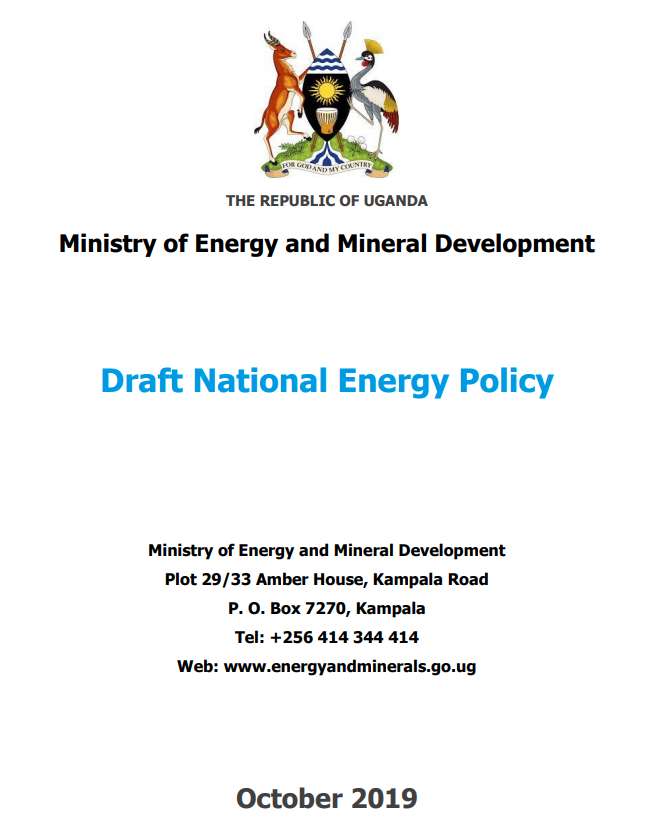
- Date
- 15th September 2020
- Categories
By Martin Price (Gamos Ltd.)
One of the major objectives of the MECS programme is to change the narrative on clean cooking: to treat clean cooking, climate change, and access to modern energy as an integrated policy imperative. Influencing policy-making thus features heavily in this objective, not just in relation to the energy sectors in MECS priority countries, but in other sectors such as trade, infrastructure, manufacturing, health, finance, food and culture. Policy change is also not limited to MECS priority countries, but extends to the international development agendas and domestic policies of Western countries, China, India, and other large regional economies.
This article is designed to shed light on the messiness and murkiness of policy-making and its implications for research programmes like MECS. In August, members of the Gamos team came together and brainstormed the question: ‘how do we change policy?’. The brainstorming session was conducted collaboratively and – for the most part – in silence, allowing all participants to contribute to different aspects of the topic in question. Writing thoughts and ideas down on paper as a collaborative exercise meant that no individual was able to dominate or dictate the direction of the exercise. This helped to ensure the brainstorming session was inclusive of diverging perspectives, and covered a broad range of issues. A briefing on the process written by Beynon and Fisher can be found here.
What we know
From the beginning of the exercise, the group seemed to form a consensus around the notion that to change policy, it is essential that researchers understand the world of policy-making and the lives of policy-makers. Government ministers, for instance, will often be juggling many different proposals on any number of existing or future policies, as well as managing the range of stakeholders and parties they are accountable to. To influence policy in such an environment, research will often need to be presented in a form that speaks the language of policy-makers, and conforms to existing institutional and bureaucratic processes. Policy change is rarely straightforward, and so time dedicated to building relationships with policy-makers and their networks can be crucial. It may mean specific researchers are called upon when existing policies are under review, or when funding opportunities arise. But this may also mean that researchers are more likely to be in the right place at the right time, already connected to the policy world and able to respond quickly when called upon.

Research must also be cognisant of the specific cultural and contextual environments that impact policy-making at any given time. In recent years, it has become paramount that research-led solutions can prove to be cost-effective, have measurable impact, and can also be supported by external funding. Local ownership is also essential, providing a legitimacy and equitability to policy proposals that help guarantee acceptance from decision makers.
What we don’t know
There are also many aspects of policy-making that researchers tend not to know. Being in the right place at the right time tends to be difficult to predict, and knowing who should be targeted can also be a barrier to influencing policy. Which individuals within a particular institution will be sympathetic to our ideas, but also have the power to integrate them into the policy-making process? Will they respond well to data-driven proposals or would something more visual or conceptual be more effective? Who are their financial supporters and what else is on their agenda? Will they be responsive to petitions and social movements? When we reflect upon these questions, it becomes clear that we must also ask: who in the research team can make the best possible case for a particular policy intervention? Naturally, answering these questions requires a good understanding of the policy-making environment, but it must be remembered that such environments are rarely as transparent as researchers would hope. How policy is made ‘behind the scenes’ becomes an important consideration for researchers, and any understanding of internal processes should be thought through when planning stakeholder engagement.
What do we suspect
This lack of transparency means that there are many things we may suspect to be true of policy-makers and the policy-making process, but we may never be certain of how true they are. How much time should be dedicated to networking and stakeholder engagement, and when does this become sufficient to allow for us to influence policy? What role do conferences and academic collaborations play in persuading policy-orientated decision-makers and political operatives? Are the specific policies under discussion a smokescreen for some other, underlying agenda? Where else is pressure being exerted on policy-makers? The press? The private sector? Where is power distributed across the much broader network of policy-influencing individuals and institutions? Experience can be enormously beneficial when it comes to answering some of these questions, but what happens when the policy process suddenly shifts beyond all recognition, due to a change of personnel, government, or economic context?
We must also be aware that the interventions we are proposing will include uncertainties. Can policy-makers be confident that our assessment of market forces are accurate and will remain true in the future? Have we considered the unintended consequences of our policy interventions, consequences that may be of specific concern to policy-makers and those they are accountable to? Can we be sure that the evidence-based proposals we are suggesting can be successfully translated into new political, economic, and socio-cultural contexts? As researchers, it is of paramount importance that answers are found to these questions. We must be able to demonstrate an understanding of different scenarios, and be able to mitigate against some of the more problematic features of these scenarios.
How do we move forward?
This article poses many more questions than answers. So, to close, what resources can researchers draw upon to help navigate the complexity of the policy environment? The importance of research to policy is grounded in its ability to produce new, relevant, evidence-based knowledge. Data libraries and up-to-date analysis provides a credibility to research that helps to critique the status quo and established ways of thinking. Additionally, case studies provide in-depth, contextualised evidence that help policy-makers envisage what a proposal may look like in practice. For policy-makers to have confidence in the proposals of a specific research institution, it is also important to be able to draw upon a long and successful record of policy influence and project implementation.
However, researchers cannot lose sight of the importance of the policy environment they are looking to penetrate. Having a sophisticated understanding of existing policy agendas, frameworks, and guidelines, is crucial in ensuring research integrates with the realities of policy-making. Researchers must understand the people, the contexts, and relationships that are relevant to the policy in question.
For MECS, the complexity of policy-making presents challenges but also opportunities. To mitigate against the challenges and to maximise the opportunities, we must think constructively about each of the questions above, and formulate answers that are relevant to the specific policy contexts in which we are engaging.